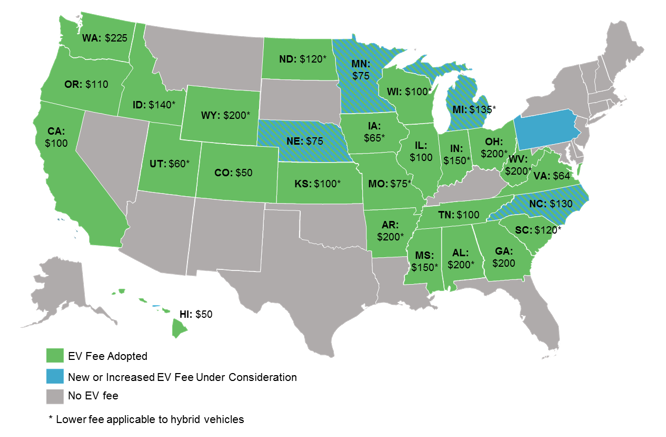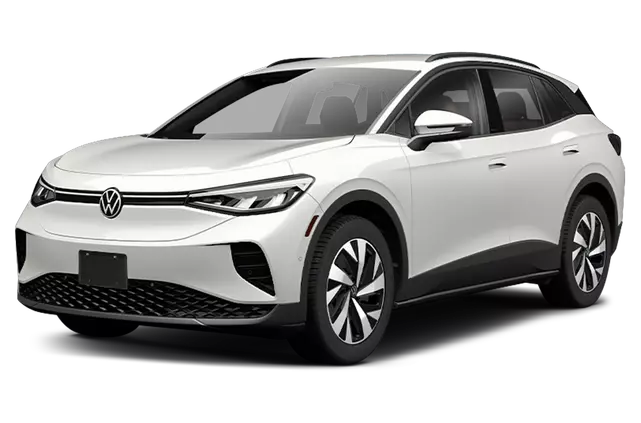The rise of electric vehicles (EVs) has transformed the automotive landscape, offering a cleaner and more sustainable mode of transportation. While EV adoption is gaining momentum across the United States, certain states have emerged as leaders in embracing this green revolution.
Featured Image credit: Squarespace
The U.S. has seen an 80% growth in the number of hybrid and electric vehicles over the past five years, which includes a 500% increase in completely electric vehicles. Although new initiatives have been implemented to stimulate the industry further, it’s important to acknowledge the technological advancements contributing to the development of EVs and their wide adoption.
Let’s discover which US states have embraced this electric wave with open arms.
Top 7 States with the Highest Percentage of EVs
- California: Leading the Charge
It comes as no surprise that California takes centre stage when it comes to electric vehicle adoption. With its strong commitment to reducing greenhouse gas emissions and promoting sustainable practices, California has created an environment conducive to EV ownership. As of recent data, approximately 4.9% of all registered vehicles in California are electric – leading the nation in market share.
California’s success can be attributed to several factors. Firstly, its robust charging infrastructure network plays a significant role in assuaging range anxiety among potential buyers while supporting existing EV owners. Thousands of public charging stations are scattered throughout the state, ensuring convenient access for residents and visitors alike.
Additionally, generous incentives such as rebates and tax credits make purchasing an EV more affordable for Californians. These financial benefits help bridge the price gap between traditional gasoline-powered vehicles and their electric counterparts.
Furthermore, strict emission regulations set by the California Air Resources Board (CARB) have compelled automakers to prioritize clean energy alternatives like electric vehicles within their product offerings – further fueling consumer interest and availability.
- Washington: Pioneering Sustainability
Washington state secures a noteworthy position, with approximately 4.28% of registered vehicles classified as electric-powered.
Known for its commitment towards renewable energy sources beyond hydropower generation alone, Washington actively encourages residents to transition from conventional gasoline-powered cars to cleaner alternatives like EVs.
Similar to California, Washington boasts an extensive network of charging stations that contribute significantly to range confidence among potential buyers. The availability of charging infrastructure addresses one of the primary concerns for prospective EV owners – “range anxiety.” Moreover, favorable government policies provide financial incentives for both consumers and businesses looking to purchase or lease an electric vehicle.
- Oregon: Forging Ahead
Oregon ranks third among leading states in EV adoption rates, with approximately 3.41% of registered vehicles being electric-powered. The state has long been at the forefront of sustainability and renewable energy initiatives.
Oregon’s commitment to environmental stewardship is reflected in its challenging targets for reducing greenhouse gas emissions. Incentives such as rebates, tax credits, and grants have played a pivotal role in encouraging residents to switch to electric vehicles.
Additionally, it has invested heavily in expanding charging infrastructure across the state, ensuring EV owners have convenient access to reliable charging stations.
- Colorado: Driving Towards Sustainability
The fourth most electric state in the country is Colorado, with approximately 2.61% of registered vehicles classified as electric. Driven by a commitment towards clean energy and reducing dependence on fossil fuels, Colorado has created a favorable environment for EV adoption.
Efforts from both government and private entities have contributed significantly to Colorado’s success story. Financial incentives like tax credits and grants are available for EV purchases or leases, making them more affordable for consumers across various income brackets.
Moreover, partnerships between utility companies and automakers have accelerated the development of charging infrastructure throughout the state – further addressing range anxiety concerns while promoting widespread adoption.
- Hawaii: Island Innovators
Hawaii may be geographically isolated, but it has emerged as a pioneer in embracing sustainable transportation solutions like EVs despite the unique challenges posed by its island geography.
With approximately 2.59% of registered vehicles being electric-powered, Hawaii ranks among the leading states in adopting this cleaner mode of transport.
The high cost of importing fossil fuels into these islands makes electricity a more affordable option for powering vehicles than gasoline or diesel fuel. This serves as an incentive that drives residents towards adopting electric cars, contributing to the state’s high EV adoption rate.
In addition to financial incentives offered by federal programs such as tax credits, local initiatives provide additional support through reduced registration fees and access to carpool lanes – further encouraging residents’ transition towards cleaner transportation options.
- Connecticut: Embracing Clean Mobility
Connecticut stands out among northeastern states, with approximately 2.02% of registered vehicles being electric-powered.
The Connecticut Hydrogen Electric Automobile Purchase Rebate (CHEAPR) program provides financial incentives to residents who purchase or lease electric vehicles. Additionally, the state has invested in expanding public charging infrastructure. It offers grants for workplace charging stations – making it more convenient for EV owners to charge their vehicles while on the go.
Despite its relatively smaller geographic size compared to other leading states, Connecticut’s commitment towards sustainable mobility is evident in its efforts to promote clean energy alternatives like EVs.
- Vermont: Driving Towards Sustainability
Vermont may be a small state, but it has big ambitions when it comes to electric vehicle adoption, boasting an approximate market share of 1.92%. The state’s commitment towards sustainability and reducing carbon emissions drive its efforts in promoting cleaner transportation alternatives.
The Vermont Energy Investment Corporation (VEIC) works alongside state agencies and utility companies to promote energy efficiency and sustainable transportation options like EVs. Financial incentives such as tax credits and grants have been established within the state framework – encouraging Vermonters’ embrace of cleaner transportation alternatives.
In conclusion, these seven states – California, Washington, Oregon, Colorado, Hawaii, Connecticut, and Vermont – stand at the forefront when adopting electric vehicles within the United States.
Their collective commitment to reducing greenhouse gas emissions, favorable government policies, and robust charging infrastructure networks have paved the way for residents’ widespread acceptance of electric cars.
As more states take note of these success stories and implement similar initiatives to encourage EV adoption, we can expect a future where clean energy-powered transportation becomes increasingly commonplace across the nation. The momentum is undeniable – electrification is here to stay.


